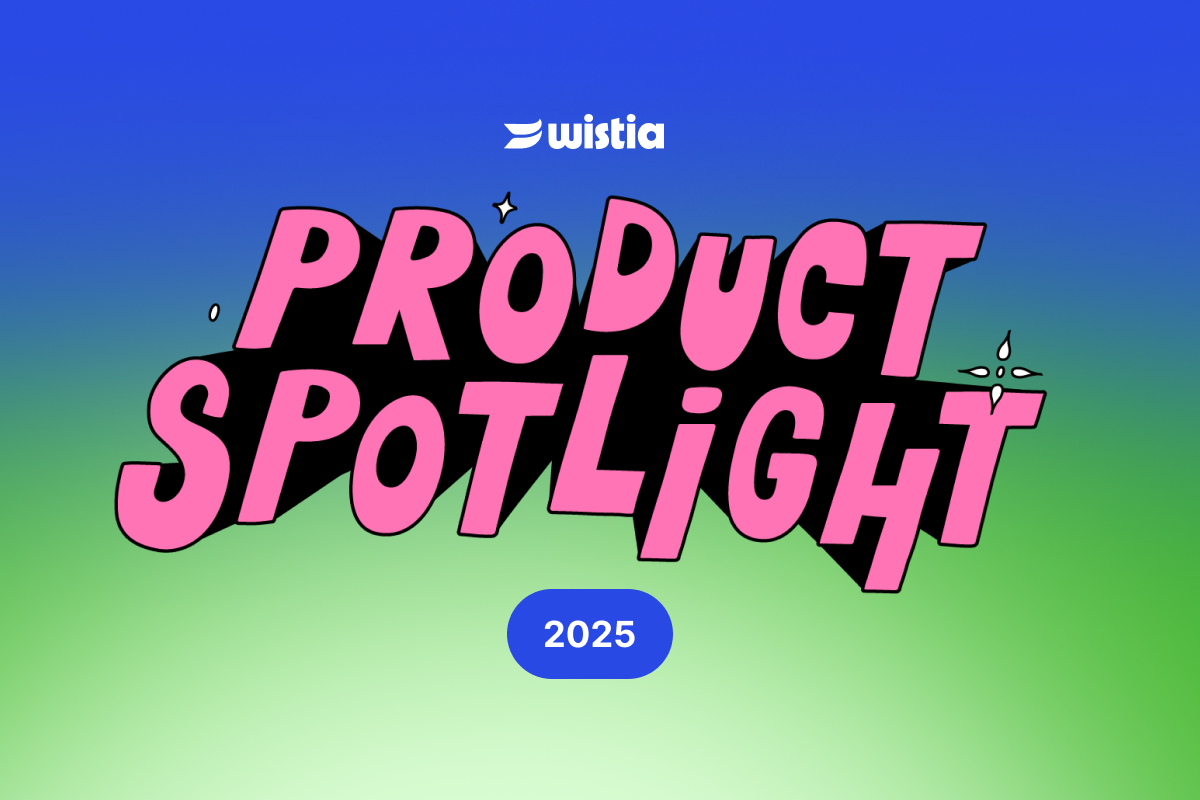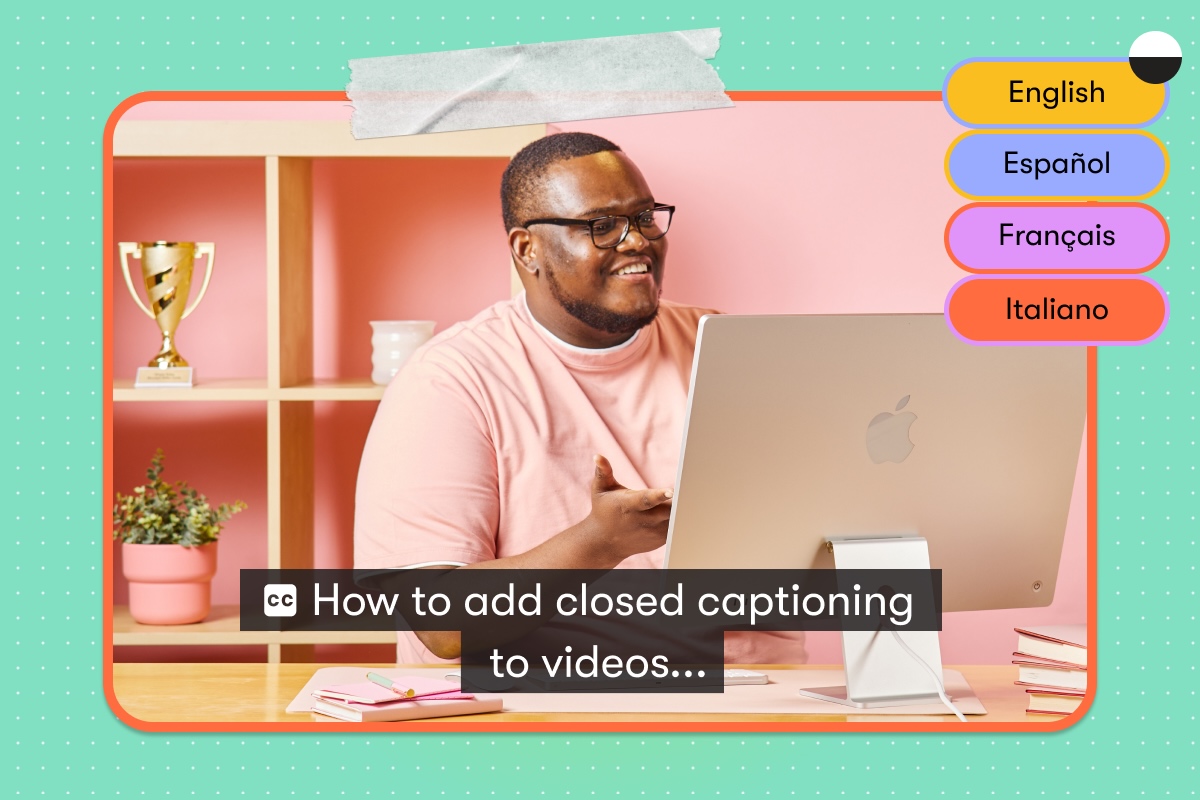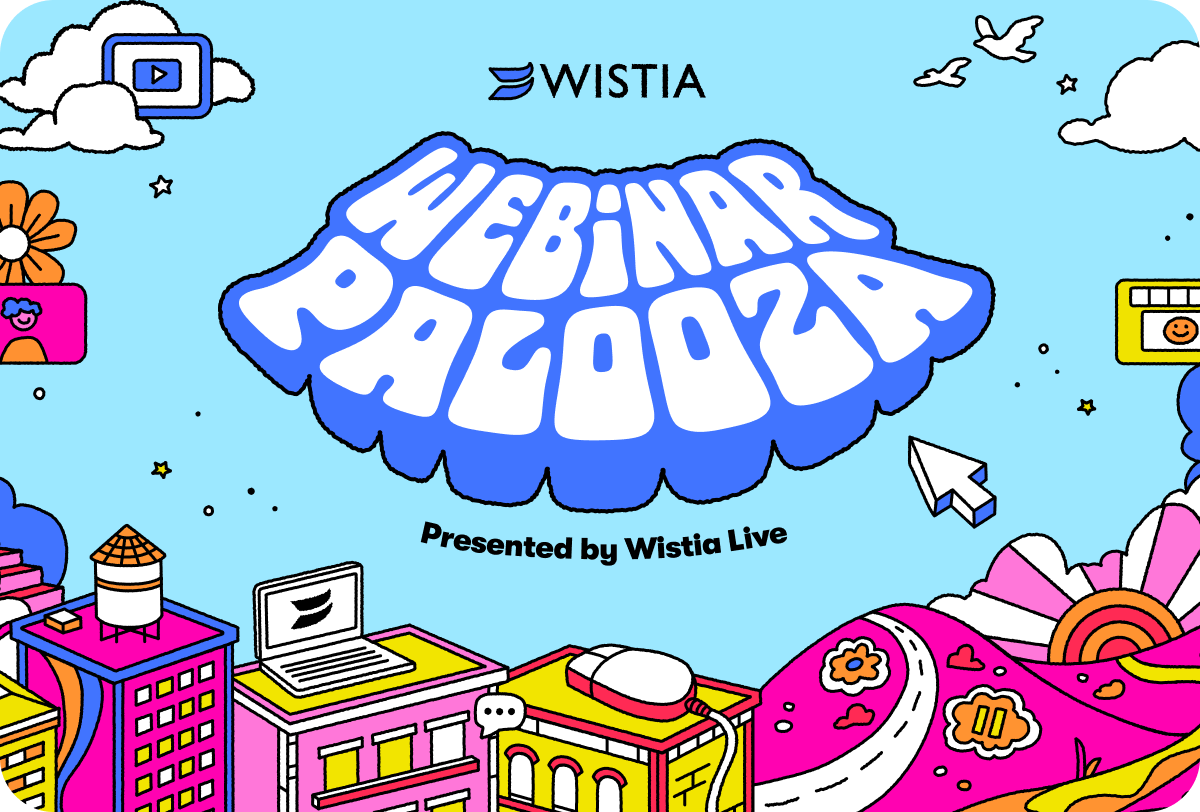The Definitive Video Marketing Glossary of Terms
April 2, 2024

Looking for a glossary of common video marketing terms? We’ve got one right here!
Video performance terms
A/B testing
The process of putting two different versions of a video head-to-head, with half of your audience seeing one version and the other half seeing the other version
You can use A/B testing to compare a variety of things: video elements like music and video length, structural changes (like the addition or omission of an intro), the placement or wording of calls to action (CTAs), custom thumbnails, and more.
Want to learn more about video A/B testing and how to do it? We’ve got just the guide for you!
Average time on page
The average amount of time visitors spend on a web page in a single session
You get this metric by dividing the total amount of time folks spent on a page by the number of non-exit pageviews. If you’ve added a video to your web page, this metric can help you evaluate its effectiveness and engagement.
In fact, adding videos to a page usually increases the time people spend there. This happens because some people who would’ve otherwise left the page will stay to watch a video. Check out this guide for more info about how videos can boost the average time spent on your site.
Bounce rate
The percentage of website visitors who leave after viewing only one page
The bounce rate of pages with video content can clue you in on how engaging your videos are. Noticed a dip in bounce rates after you added a video to a page? That’s a good sign your video is encouraging visitors to explore more pages on your site.
In fact, pages with video generally have a lower bounce rate than pages without.
Completion rate
The percentage of viewers who watch a video from start to finish
This metric helps you understand whether your video is engaging, relevant, and valuable enough to keep your audience watching until the very last second.
Conversion rate
The percentage of viewers who find a conversion opportunity in a video and take the desired action
This action could be clicking on an annotation link, pressing a CTA button, or submitting an email capture form. To calculate the conversion rate, take the number of actions taken and divide it by the number of impressions.
Engagement rate
The percentage of a video that a viewer watches
This metric offers a glimpse into how well your message resonates with your audience. If engagement rates drop after a certain point, it could be a sign that folks found what they were looking for and stopped watching — or it could mean that they lost interest. This insight can help you fine-tune your messaging.
Video heatmap
A graphical representation of how viewers interact with a video
Some heatmaps (like ours) let you see which parts of your video each viewer watched, rewatched, and skipped — and even what device and web page they used to play your video.
Video play rate
The percentage of unique page visitors who find a video and decide to hit play
To get the play rate, divide the total plays by the total number of impressions. It’s a great way to figure out how relevant your video is, whether you’re embedding it in the right place, and how eye-catching the thumbnail is.
Want to dive deeper into play rates? Check out this article. And if you’re looking to get more people to press play, we’ve got tips on boosting your video play rate.
Video SEO
The process of maximizing a video’s visibility in search engine results
Some of the most common video SEO techniques include putting relevant keywords into video titles and descriptions, using a video sitemap, and offering a transcript alongside your video. Looking for more techniques? We’ve got nine of ‘em!
Types of marketing videos
Brand video
A video that showcases your company’s core values, mission, and personality; usually shorter than 30 minutes
Brand videos come in many different formats — about us videos, trailers, and employee onboarding videos, to name a few. They focus on who your company is, not what it sells. We have a guide on brand videos if you want to take a deeper dive.
Customer testimonial video
A video featuring a satisfied customer sharing their positive experience with your brand or product; usually up to 10 minutes long
Customer testimonial videos are a great way to highlight how your product or service solves real-life challenges. They can offer just the push an active lead needs to purchase from you. We can show you how to create a winning video testimonial strategy right here!
Explainer video
A one- to two-minute video that explains how your product works and why it’s the right solution for your audience
Explainer videos come in different styles, most commonly live action, animation, screencast, or whiteboard. A good one opens with a common problem, introduces the product as the solution, demonstrates how it works, and ends with a compelling CTA that invites viewers to learn more or try out the product.
Here’s a great animated explainer video example from Zendesk:
To read more about explainer videos, check out this article.
Highlight reel
A compilation of the most interesting moments of a longer video; usually one to three minutes long
Think of it like a teaser trailer that grabs your attention and makes you want to dive into the full video. And creating one is easier than it sounds. All you need is a transcript or an AI tool.
On-demand recording
A recording of a live event that’s available for viewers to watch at their own convenience
You can record a live virtual event like a webinar or town hall and make the recording available on demand. It’s common to send the recording to your registrants after the event is over. It’s also a good idea to display a collection of live event recordings in a video gallery on your site.
Long-form video
A video that lasts more than five minutes
Long-form videos are great for when you want to dig deep into complex concepts. The most common examples include interviews, panel discussions, and webinars.
Short-form video
A video that lasts less than five minutes
Designed to quickly capture and hold viewers’ attention, short-form videos are especially a hit on social media. Popular examples include promotional videos, FAQ videos, and video ads.
Video distribution terms
Closed captions
Text overlays at the bottom of a video player that show you the spoken words, background noises, and other sounds happening in the video in real time
There are two types of video captions: closed captions and open captions. The viewer can turn on and off closed captions whenever they want. Open captions are permanently on top of a video and cannot be turned off.
Conversion opportunity
An interactive element inserted into a video to prompt viewers to take the next step with a brand
Examples for videos include clickable CTAs, annotation links, and email capture forms.
Descriptive transcript
A type of transcript that describes key visual details in a video
Screen readers can read transcripts out loud, so descriptive transcripts come in useful for folks who rely on screen readers when consuming videos. The key visual details can help them picture what’s on the screen.
Embedding
The process of adding a video to your website with an HTML code
This makes it possible for visitors to watch the video right on your site without having to go somewhere else.
Resolution
The total number of pixels displayed in a given video frame
The most common video resolutions for the web include 1920 x 1080 (full HD), 1280 x 720 (720p), and 3840 x 2160 (4K).
Simulcasting
The process of broadcasting video content to several spots at the same time
A good live streaming platform lets you simulcast your live event to multiple social platforms at the same time. All you gotta do is grab a stream key and RTMP URL from each social platform and then plug these into your live streaming platform.
Transcript
A written log of all the dialogue and narration happening in a video
A transcript is offered alongside a video, typically as a separate document or text file, and they’re compatible with screen readers. It’s common to turn a transcript into captions, subtitles in a different language, and other assets for your video. Plus, transcripts help search engines understand the content, which makes them useful for video SEO.
Getting a transcript of a video is much easier than it sounds. Find out how!
Video accessibility
The practice of making video content easy for everyone to watch and understand
You can make a video more accessible by adding closed captions and descriptive transcripts. And it’s a good idea to use a video player with accessibility features, such as high-contrast colors, visible player controls, alt text for thumbnails, and more.
Video hosting
The process of uploading, storing, and managing a video on an online platform
You can host videos the DIY (a.k.a. super hard) way by building your own video player, or you can upload your videos to a video hosting platform like Wistia that handles all the technical stuff for you.
Video player
A software application that lets you play videos on websites or apps
Video players come with play, pause, and volume buttons. More sophisticated ones offer additional features, like closed captions, playback speed options, and video quality options.
Video thumbnail
A still or dynamic image that you see in the video player before you hit the play button
A video thumbnail can influence a viewer’s decision to watch a video or skip it.
General video marketing terms
Audience engagement
The level of viewer interaction and interest in a video
There are many different ways to measure the engagement levels of a marketing video: completion rates, conversion rate, heatmaps, and more.
Impressions
The total number of times a video shows up in front of folks
As a metric, it helps you assess the exposure and reach of a video. However, it doesn’t take into account whether someone watches a video after it loads on a screen.
Key performance indicators (KPIs)
Trackable and measurable metrics that help you gauge the success of your marketing video or strategy
The KPIs you choose depends on your goals. Let’s say your goal is to increase brand awareness. Metrics like impressions, views, completion rates, and shares will help paint a clear picture of whether your videos are getting the job done.
Video lead generation
The act of collecting viewers’ contact information before, during, or after a video
A common way to do this is to gate your videos with email capture forms. You can also host a webinar (or any other live event) that requires folks to pre-register.






